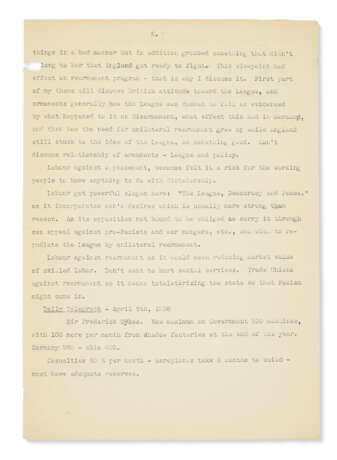ID 743830
Lot 170 | An early draft of his Harvard thesis
Estimate value
$ 10 000 – 15 000
| Place of origin: | USA |
|---|---|
| Auction house category: | Letters, documents and manuscripts |
| Place of origin: | USA |
|---|---|
| Auction house category: | Letters, documents and manuscripts |
| Address of auction |
CHRISTIE'S 20 Rockefeller Plaza 10020 New York USA | ||||||||||||||
|---|---|---|---|---|---|---|---|---|---|---|---|---|---|---|---|
| Preview |
| ||||||||||||||
| Phone | +1 212 636 2000 | ||||||||||||||
| Fax | +1 212 636 4930 | ||||||||||||||
| Conditions of purchase | Conditions of purchase | ||||||||||||||
| Shipping |
Postal service Courier service pickup by yourself | ||||||||||||||
| Payment methods |
Wire Transfer | ||||||||||||||
| Business hours | Business hours
|













